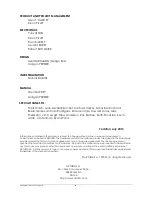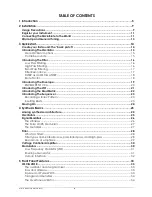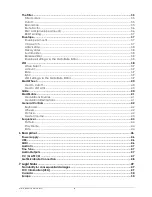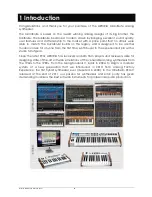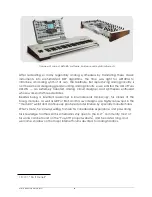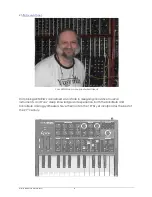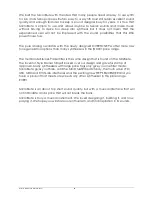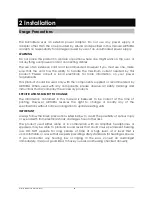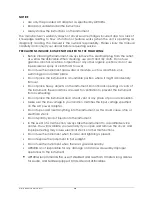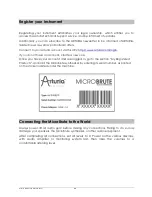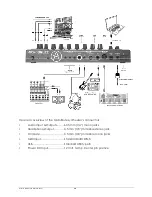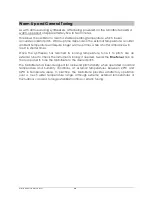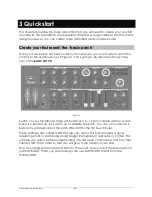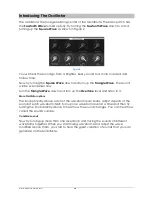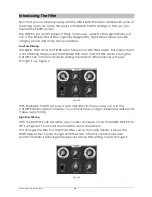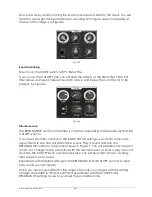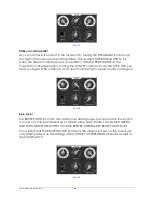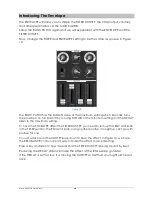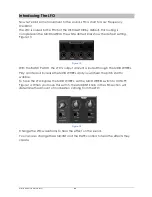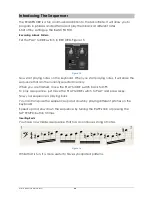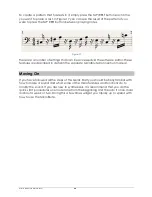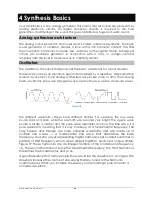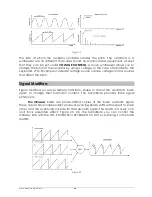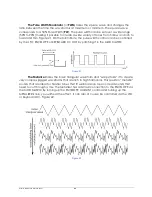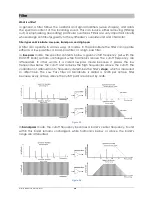
Arturia Microbrute User’s Manual
13
Warm-Up and General Tuning
As with all true analog synthesizers, after being powered-on the MicroBrute needs a
warm-up period of approximately five to ten minutes.
This allows the oscillator to reach a stable operating temperature, which insures
accurate oscillator pitch. Warm-up time depends on the external temperature; a colder
ambient temperature will require longer warm-up times, while a hotter ambiance will
result in shorter times.
Once the synthesizer has reached its running temperature, tune it to pitch. Use an
external tuner to check the instruments tuning; if needed, tweak the
Fine Tune
knob on
the rear panel to tune the MicroBrute to the desired pitch.
The MicroBrute has been designed for rock-solid pitch stability when operated in normal
temperature and humidity conditions, at external temperatures between 20°C and
32°C in temperate areas. In practice, the MicroBrute provides satisfactory operation
over a much wider temperature range, although extreme external temperatures or
fluctuations can lead to longer stabilization time or erratic tuning.


